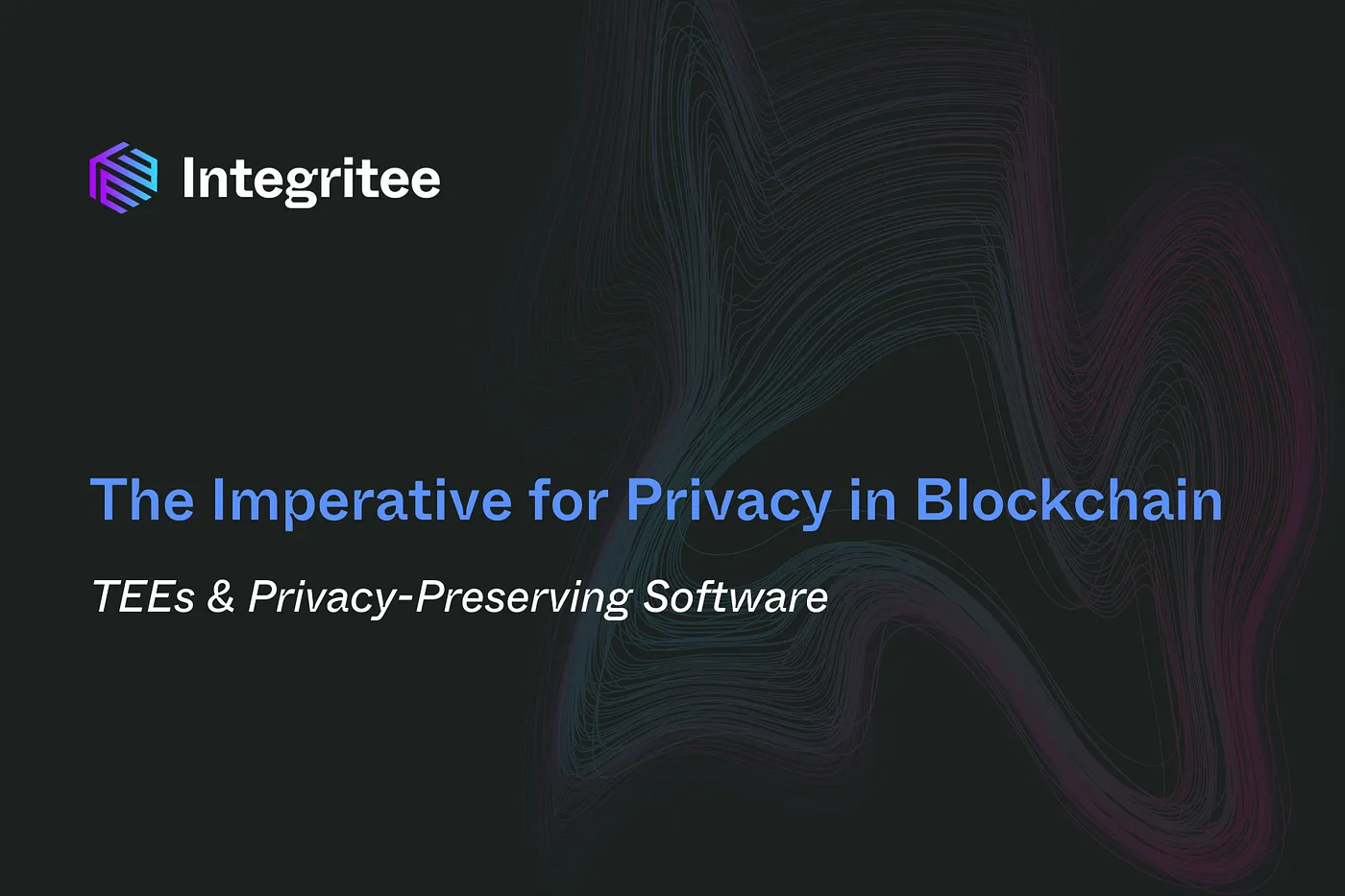Blockchain technology has revolutionized various industries, offering transparent and immutable ledger systems. However, one crucial aspect has been largely overlooked: privacy. The need for privacy in blockchain is more critical than ever, as it can pave the way for broader adoption in various sectors, from finance to healthcare. This article explores the need for privacy in blockchain and how trusted execution environments (TEEs) and privacy-preserving software can address this need.
The Privacy Imperative
In a world where personal information is a valuable commodity, it is essential to ensure privacy within blockchain systems. Without privacy features, public blockchains expose sensitive data to anyone with access, making them unsuitable for many applications where data confidentiality is paramount, such as medical records and financial transactions.
Many industries are heavily regulated when it comes to data privacy and protection. To comply with these regulations, such as GDPR in Europe, blockchain systems must incorporate privacy features that safeguard user data. Otherwise, organizations risk severe penalties and legal issues.
Privacy-preserving blockchain projects can facilitate the adoption of blockchain technology in businesses that require discretion, such as supply chain management, intellectual property protection, and sensitive contract execution. This expansion of use cases can drive further innovation and growth in the blockchain space.
Combining TEEs and privacy-preserving tools
Trusted Execution Environments are hardware-based security solutions that provide a secure, isolated environment for executing code and processing data. TEEs, such as Intel’s SGX, are essential for enhancing blockchain privacy — they ensure the confidentiality of data by encrypting and isolating sensitive operations from the rest of the system. Even the operating system and hardware cannot access the data processed within the TEE.
When it comes to enhancing blockchain privacy, there are certain software solutions that can be combined with TEEs. Zero-knowledge proofs, such as zk-SNARKs and zk-STARKs, enable parties to verify the truth of a statement without revealing the underlying data. This allows for private transactions and confidential information sharing on a blockchain.
Another example of a privacy-enhancing tool is homomorphic encryption. It enables data to be processed while still in an encrypted state. This ensures that sensitive information remains private during computation, making it ideal for financial and healthcare applications.
From luxury to necessity
Privacy is not a luxury but a necessity in blockchain technology. Trusted Execution Environments and privacy-preserving software are crucial tools in achieving this goal. They ensure that personal data remains confidential, that blockchain systems are compliant with regulations, and that the technology can be widely adopted across industries. As the blockchain ecosystem evolves, prioritizing privacy will be the key to unleashing its full potential in a wide range of applications.
Privacy powered with interoperability and scalability
At Integritee, we employ Intel SGX TEEs to enable confidential computation, thus allowing for private transactions of different sorts. While providing privacy, Integritee is designed to be a decentralized solution, which makes our network more resistant to censorship and single points of failure.
Our project is interoperable with other blockchains and can be used together with other decentralized networks and applications, a kind of flexibility that enhances its potential. Another reason why our team uses TEEs is to be able to find a nice and steady balance between performance and privacy, as the classic blockchain model frequently fails to deliver optimal performance rates.
Integritee’s solution aims to strike a balance between privacy, security, and decentralization. It seeks to address some of the privacy concerns associated with public blockchains while still providing a transparent and trustless environment for various applications.
